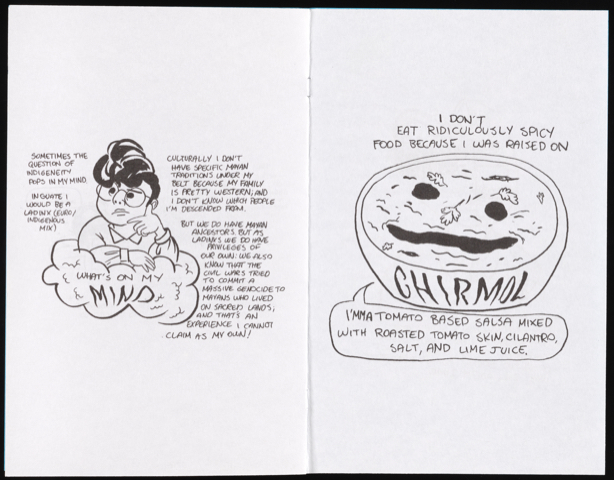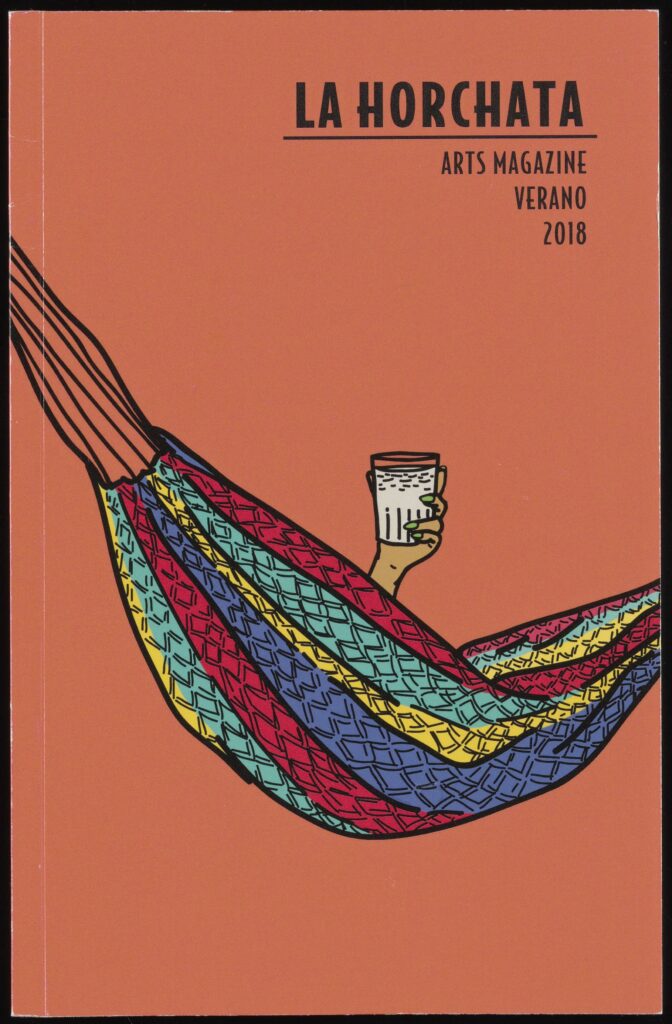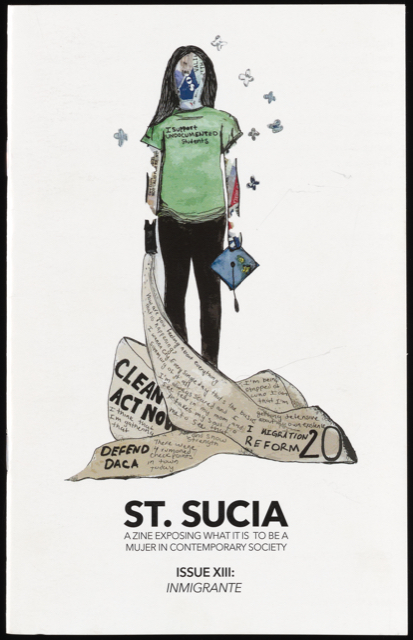By Daniel Arbino, Librarian for U.S. Latina/o Studies
They are colorful, vibrant, tongue-in-cheek, eclectic, expressive, melancholic, and political. They are self-published, sold, traded, and given away. Extremely rare, but inexpensive. And now, they are on display. The University of Texas at Austin’s Latino Studies has a flashy new exhibition in the halls of the Gordon-White Building (GWB). Made up of self-published poetry, essays, photographs, short stories, and artwork, Dissent: Zine Culture (And the Voices You Wouldn’t Hear Otherwise) highlights the Nettie Lee Benson Latin American Collection’s U.S. Latinx Zine and Graphic Novel Collection with over forty zines.
The term “zine” is derived from fanzine, a form of expression that started in the 1930s among science fiction fans. Zines took off in the 1960s among countercultures, particularly those invested in socio-political activism that may have identified with civil rights movements, the Chicano movement, Feminism, LGBTQ+, etc. From the 1970s to the 1990s, zines continued to grow, especially through punk communities. Now, zines are more popular than ever, with a variety of subject matter that can be disseminated using twenty-first-century technologies like social media or Etsy.
What makes zines so important is that they provide an outlet for groups that have been overlooked or silenced by mainstream society and, by extension, publishers. Through self-publishing, creators of cultural content have autonomy over their content and design. This would resonate with the intersectionality flourishing within Latinx communities.

The origins of the U.S. Latinx Zine and Graphic Novel Collection started in the summer of 2017 with the single purchase of Chifladazine at the Lone Star Zine Fest in Austin. Since then, the collection has grown in its size and uniqueness with additional purchases made on trips to San Antonio, New York City, and Albuquerque. Other zines have been purchased online over the span of two years. The collection currently consists of 259 zines, graphic novels, and chapbooks that focus on U.S. Latinx zine creators. Some Indigenous writers are included as well. The Benson’s oldest zine is from 1984, but the majority were published within the last decade.
One particular interest has been on different, but inclusive, Latinx voices, with a special privilege given to feminist and LGBTQ+ expressions. Within the collection, there zines about Xicana veganism, traditional knowledge systems, gentrification, immigration, and body positivity that dismantle ways in which mainstream society thinks about these topics. Their relevance underscores the fact that zines provide a documented record of opposition, hence the exhibition title.

Curated by Mallory Laurel, the Director of Outreach and Communications for Latino Studies, Dissent: Zine Culture (And the Voices You Wouldn’t Hear Otherwise) recognizes the power that self-publishing has as a means to challenge accepted mainstream ideas while attracting the attention of students with their eye-catching formats. The exhibit is thematically structured around seven different themes: health & body, love & relationships, politics & protest, place & identity, medicinal folklore, St. Sucia Zines, and zines that come in different shapes and sizes. Though each scope is different, all aim to enunciate new modes of representation; all refuse to accept silence.

While this particular collection is new, the Benson has a history of collecting ephemeral materials such as Puerto Rican graphic novels, Brazilian cordel literature, Cuban historietas, and cartoneras. Our goal is to offer a wide breadth of materials from Latinx and Latin American populations. To that extent, Latinx zines and graphic novels participate in a hemispheric attempt to use self-publication as a means to articulate perspectives on community and identity. In housing zines at the Benson, we show creators that we value their message, support and promote their work, and want them to succeed. To our patrons, we want to emphasize the inclusivity of our collection and of our space.

The Exhibition
The Dissent exhibition will run until December 10, 2019. Patrons can visit the Benson Latin American Collection to access our other zines and should continue checking back periodically as the collection grows.

